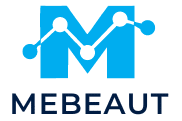There is no denying the unwavering correlation between nutrition and bodybuilding. Every rippling muscle, every ounce of resistance, and every gram of protein intake, all reflect the dietary choices made by the bodybuilders. In the realm of bodybuilding, diet is not just a casual approach to food, it is a calibrated strategy to boost performance and enhance muscle growth. But what are the key elements that make a diet effective for bodybuilding? And how can these be optimized for maximum gains? This article explores the answers to these questions, providing professional insights into the world of nutrition and bodybuilding.
The Core Components of a Bodybuilding Diet
A bodybuilding diet is not just about consuming high amounts of protein and reducing fat intake. It’s a complex mechanism that involves a balance of macronutrients, micronutrients, and energy. This section takes an in-depth look into these components, their roles, and their optimal levels.
Also to discover : How Can Psychological Skills Training (PST) Enhance Competitive Edge in Track Athletes?
When we talk about bodybuilding, protein is often the first nutrient that comes to mind. Proteins are the building blocks necessary for muscle growth and recovery. They are crucial for repairing the muscle tissues that are broken down during resistance exercise. While the protein requirement varies among individuals due to factors like body weight and intensity of training, the general intake recommended by scholars is 1.2 to 2.0 grams per kilogram body weight per day.
Carbohydrates are equally essential in a bodybuilding diet. They provide the necessary energy for strenuous workouts. Carbohydrates are stored in the muscles and liver as glycogen, which serves as a key energy source during high-intensity workouts. A diet low in carbohydrates may lead to depletion of glycogen, which can hinder performance and muscle growth.
Also to read : What Are the Ethical Challenges in Genetic Testing for Talent Identification in Sports?
Fat, often portrayed as the villain in a diet, holds an important place in terms of nutrition. Dietary fats help in the absorption of fat-soluble vitamins and are a crucial source of energy. They also play a significant role in hormone production, including testosterone, which is vital for muscle growth.
The Role of Timing in Nutrient Intake
Just as what you eat matters, when you eat also has significant relevance in bodybuilding. Timing your nutrient intake around your training can make a considerable difference in muscle growth and performance. This segment discusses the importance of nutrient timing and provides guidance on how to strategically structure your meals.
Pre-workout nutrition is all about fueling your body for the upcoming training session. A balanced meal of protein, carbohydrates, and a little fat consumed 2-3 hours before your workout can provide sustained energy and prevent muscle protein breakdown.
Post-workout nutrition is equally crucial as it contributes to recovery and muscle growth. Consuming protein and carbohydrates within an hour after your workout can aid in replenishing glycogen stores and initiating muscle protein synthesis.
Supplements for Bodybuilding: Are They Necessary?
While whole foods should be the primary source of nutrition, dietary supplements can serve as a useful adjunct to a well-balanced diet. The use of supplements in bodybuilding has been a topic of debate among scholars and practitioners. This section delves into the rationale behind using dietary supplements and guides you on how to choose the right ones.
Protein supplements, such as whey and casein, are popular among bodybuilders. They offer a convenient and efficient way to meet the high protein requirements. Studies reported on PubMed, the respected database of scholarly medical articles, suggest that protein supplementation can enhance muscle protein synthesis and improve body composition when combined with resistance training.
Creatine is another supplement widely used in the bodybuilding community. It helps to increase muscle strength and size, improve performance, and promote greater gains in lean body mass.
The Science of Caloric Intake and Bodybuilding
Every bodybuilder’s goal is to build muscle without gaining unnecessary fat. This balance is achieved through careful manipulation of caloric intake. This final section explores the importance of calculating your caloric needs and the art of ‘bulking’ and ‘cutting’ in bodybuilding.
Your caloric intake is determined by your total daily energy expenditure (TDEE), which includes your basal metabolic rate (BMR), and the energy used during physical activity. Consuming more calories than your TDEE will result in weight gain, while consuming fewer calories will lead to weight loss.
In bodybuilding, the concept of ‘bulking’ refers to a phase of consuming more calories to build muscle, often accompanied by a certain amount of fat gain. Conversely, ‘cutting’ is a phase of reduced caloric intake to shed the gained fat while maintaining as much muscle as possible. A well-managed bulk and cut cycle can maximize muscle growth and minimize fat gain for optimal body composition.
Remember, bodybuilding is a journey of discipline, determination, and constant learning. By understanding your nutritional needs and adopting strategic dietary practices, you can effectively fuel your performance and muscle growth. Take each day as an opportunity to get closer to your goals and remember to listen to your body. It’s your most reliable guide!
The Importance of Micronutrients and Fluids in Bodybuilding
While macronutrients form the backbone of a bodybuilding diet, micronutrients and hydration also play a pivotal role. Micronutrients, including vitamins and minerals, are essential for countless physiological processes, including energy production, nutrient metabolism, and bone health. This section explores the role of micronutrients and hydration in muscle building and overall health.
Vitamins and minerals perform a range of functions in the body that are critical for muscle growth and recovery. For example, B-vitamins such as thiamin, riboflavin, and niacin help in energy production and amino acid metabolism, while minerals like calcium and magnesium are essential for bone health and muscle contraction.
Antioxidants like vitamin C and E protect muscle cells from oxidative stress induced by intense workouts. Moreover, iron is required for the transportation of oxygen in the body and zinc plays a critical role in protein synthesis and muscle repair.
Hydration should not be ignored in a bodybuilding diet. Water helps regulate body temperature, lubricate joints, and transport nutrients to give you energy and keep you healthy. Being dehydrated can severely impact your strength, power, and endurance, thereby affecting your workout performance.
Incorporating a variety of nutrient-dense foods in your diet can help ensure you get an array of micronutrients. However, in some cases, supplementation might be necessary to meet the increased nutrient demands of intense bodybuilding.
Conclusion: The Fusion of Nutrition and Bodybuilding
The role of nutrition in bodybuilding is multi-faceted and complex. It is not just about optimizing protein intake for muscle growth but involves a comprehensive approach that balances energy intake, macronutrient distribution, nutrient timing, and hydration.
The path to muscle building is not a one-size-fits-all. It requires a personalized nutritional strategy that considers individual goals, body composition, training intensity, and dietary preferences. Accessing reliable resources such as Google Scholar, CrossRef Google, and PubMed CrossRef can provide valuable insights into the latest research on bodybuilding nutrition.
Remember, no amount of dietary manipulation can substitute for hard work in the gym. Consistency in both diet and training is the key to achieving significant muscle gains. As the saying goes, "abs are made in the gym but revealed in the kitchen". This maxim holds true for all muscle building, underscoring the crucial partnership between diet and resistance training for optimal results.
Keep in mind that while this article provides a general guideline, it is always advisable to consult with a registered dietitian or a sports nutrition professional to design a diet plan that best suits your individual needs and goals.
Pushing the boundaries of your physical potential is an exciting journey. With strategic planning, discipline, and commitment, you can successfully optimize your nutritional strategy to build muscle, enhance performance, and achieve your bodybuilding goals.








